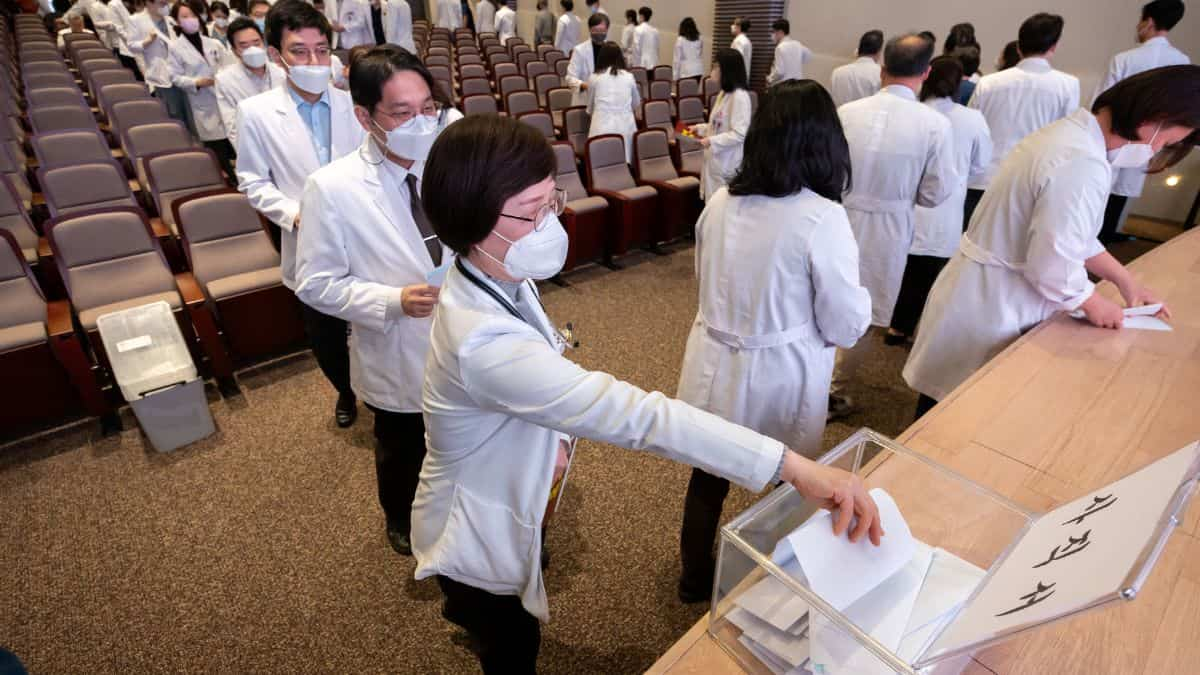Medical Professors in Solidarity
Kim Chang-soo, president of the Medical Professors Association of Korea, announced that professors will start scaling back outpatient treatment and will only focus on emergency and severely ill patients, while some may even submit their resignations.
Reason for Reduction in Practice Hours
Medical professors in South Korea on Monday (Mar 25) announced that they would reduce their practice hours in solidarity with trainee doctors who have been on strike for over a month. The trainee doctors have been protesting a government plan to increase medical school admissions.
Cause of Concern
Kim Chang-soo expressed concern about the increasing medical school admissions and said it would negatively impact medical education and potentially lead to the collapse of the country’s healthcare system. He stated, “It is clear that increasing medical school admissions will not only ruin medical school education but cause our country’s healthcare system to collapse.”
Impact of Government’s Plan
The nation plans to increase the number of students admitted each year to medical school from 2025. According to the South Korean government, increasing medical school admissions is necessary to address a shortage of doctors in one of the world’s fastest-ageing societies. However, critics argue that the focus should be on improving the working conditions of trainee doctors first.
Government’s Response
President Yoon Suk Yeol has vowed to proceed with the admissions plan despite the strike. The government has also threatened to suspend the licenses of striking doctors. However, President Yoon has urged Prime Minister Han Duck-soo to consider more “flexible measures” in dealing with the situation. Yoon has also instructed the prime minister to establish a “constructive consultative body” to engage with medical professionals.
Impact of the Strike
The strike by trainee doctors, which began on February 20, has caused several hospitals to reject patients and delay procedures. A Gallup poll released on March 15 revealed that public opinion is divided on the government’s handling of the situation. While 38 per cent approve of its response to the backlash from doctors and the medical void caused by the strike, 49 per cent disapprove and said “not a good job.”
















































